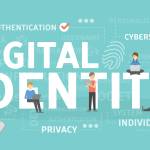Papua New Guinea
The Papua New Guinea (PNG) government has announced the launch of a secure data exchange platform for its digital ID platform system. It is also introducing a new digital governance framework to unify government ICT systems and prevent redundancy.
The platform, named SevisDEx, will allow government agencies and private companies to securely share data. The system is designed to make public services faster, easier and more secure, the Department of Information and Communications Technology (DICT) announced. Its launch is set for March 2026.
SevisDEx is part of the SevisPNG Project, which has four main components, including the digital identity SevisPass, government services platform SevisPortal and digital payment system SevisPay. In 2024, the country successfully ran a pilot of the SevisPass digital identity, which aims to help citizens access public and private sector services.
The PNG government plans to launch some features before March 2026, including the e-government portal and residence passes. Other planned features include police clearance applications, arrival cards for travellers and digital payments, according to Biometric Update.
United Kingdom
Yoti has officially become a certified Orchestration Service Provider (OSP) under the UK’s Digital Identity and Attributes Trust Framework (DIATF), enabling the company to provide integrations for businesses that want to accept digital identities from multiple providers.
Additionally, Smartr365 is to integrate Yoti’s identity verification function into its platform. The Digital ID network includes Yoti ID, Post Office EasyID and Lloyds Bank Smart ID. Brokers will be able to verify clients for £2 per search.
Vietnam
Ho Chi Minh City has launched mobile teams to issue digital IDs to foreigners, expanding beyond fixed-location services to provide on-site support at workplaces and residential areas. The initiative builds upon Vietnam’s nationwide digital ID programme for foreign residents, which began issuing Level-2 digital identification accounts earlier this year.
The programme has already processed nearly 15,000 foreign registrants for digital IDs, with mobile teams directly supporting over 1,000 applications, as per Mobile ID World
United States
The US Department of the Treasury is seeking public feedback on how digital identity tools and other emerging technologies could be used to fight illicit finance in crypto markets, with one option being embedding identity checks into decentralised finance (DeFi) smart contracts.
The consultation stems from the newly enacted Guiding and Establishing National Innovation for US Stablecoins Act (GENIUS Act), signed into law in July.
One of the ideas in the request for comment is the potential for DeFi protocols to integrate digital identity credentials directly into their code. Under this model, a smart contract could automatically verify a user’s credentials before executing a transaction, effectively building Know Your Customer (KYC) and Anti-Money Laundering (AML) safeguards into blockchain infrastructure.
If you liked this content…
Saudi Arabia
The Saudi Arabian government has approved the use of a digital identity system for non-Saudi, non-resident foreigners to own real estate in the Kingdom. The digital ID must be obtained and activated through the Absher platform, a secure digital service operated by the Ministry of Interior.
The rollout of this digital access mechanism is being coordinated by the General Real Estate Authority, in partnership with the Ministry of Interior, the Saudi Data and Artificial Intelligence Authority (SDAIA), the National Information Center, and other relevant government bodies.
Greece
The Greek government is set to issue a Personal Citizen Number to every resident who has not yet registered.
Beginning September 5, anyone without a Personal Citizen Number will find it waiting in the system, ensuring that all Greek citizens share a single, unique digital identifier for dealings with public services.
The Personal Number will gradually replace existing identifiers such as the Social Security Number (AMKA), Tax Identification Number (AFM) and identity card number. Also known as the Personal Citizen Number (PCN), the new universal ID for Greek citizens launched in May as part of the country’s unified digital ID system.
Global
The identity verification market is expected to reach $40.69 Billion by the end of 2032, according to a new report from SkyQuest Technology Consulting – up from $12.52 Billion in 2024.
The firm puts the growth down to the rising incidence of cybercrime and identity theft, stringent regulatory compliance requirements (such as KYC and GDPR), and the growing need for secure and seamless digital onboarding across sectors like finance, healthcare, and e-commerce.
Global
US-based identity and fraud prevention platform provider Alloy has formed a global partnership with Mastercard to launch a customer onboarding solution for fintechs and financial institutions (FIs) that draws on Mastercard’s identity and Open Finance solutions.
The new Mastercard Alloy joint onboarding solution will provide a “consistent identity risk strategy and onboarding experience across channels”, according to a press statement.
The launch comes after the Alloy 2025 State of Fraud Report revealed that 60 percent of FIs and fintechs reported an increase in fraud rates in 2024.




